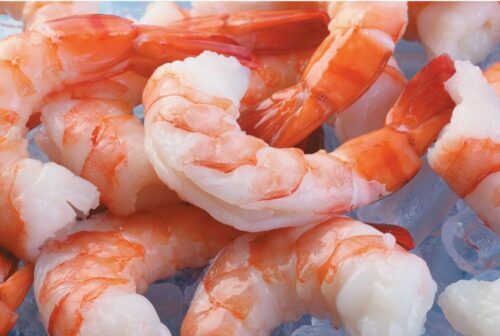Seafood can fuel you with heart-healthy power or toxins; it all depends on what kind you choose to eat. Sadly, so many fossil fuel emissions, toxic industrial compounds like polychlorinated biphenyls (PCBs), and heavy metals like mercury are polluting our waters and building up in our fish sources. These kinds of toxins can also build up in our bodies and cause devastating effects.
In a study that was done a few years ago by the National Institutes of Health, researchers found that African Americans consumed more total fish than white subjects, and most of the additional consumption was in the form of fried fish. As we age, we need the heart healthy benefits of omega-3 but there are certain types of seafood that we should just steer clear of and here are six of them:
- Tilapia. Eating the widely consumed fish is actually worse than eating bacon! Wake Forest University School of Medicine researchers found that farm-raised tilapia, as well as farmed catfish, “have several fatty acid characteristics that would generally be considered by the scientific community as detrimental. Tilapia has higher levels of potentially detrimental long-chain omega-6 fatty acids than 80-percent-lean hamburger, doughnuts, and even pork bacon.” It contains low amounts of omega-3 and high levels of omega-6 fatty acids. According to the researchers, the combination of omega-3 and omega-6 is dangerous for folks with heart disease, arthritis, asthma, allergies, and autoimmune diseases. The combo in the fish causes an inflammatory reaction in the body that can damage the heart, blood vessels, lungs, joint tissues, skin, and the digestive tract.
- Shark. An estimated 100 million sharks are killed each year to feed consumer demand for their meat. It is a common seafood in many countries but is believed to contain the highest toxins over all other fish species. The Environmental Defense Fund advises against eating shark because of its high levels of mercury. According to a CNN report from nearly 20 years ago, the mercury levels in sharks can cause coordination loss, blindness, and even death. Scientists think that sharks accumulate mercury in their body because they eat many smaller fish.
- King mackerel. Kingfish produce large and thick fillets and they tend to be oily, so folks love to low-temperature smoke them. Kings also are good coming off a grill. Beware! However, king mackerel has one of the highest levels of mercury out of all of the popular saltwater fish according to the FDA.
- Imported or farm-raised shrimp. Shrimp is the most popular seafood in the United States, but only a tiny fraction of that comes from domestic sources. Ninety percent of the shrimp we eat is imported, and almost all of that comes from farms in Southeast Asia and Central America. A 2015 Consumer Reports study found that of 205 imported shrimp samples, 11 from Vietnam, Thailand, and Bangladesh were contaminated with antibiotic residues. Some of these antibiotics have been linked to cancers, while others are illegal to administer to food animals in the United States. The next time you purchase shrimp ask the seller about its origins. If it was raised in Asia or Central America, slow your roll! If you need help, the Seafood Watch app offers good guidance on what to choose and what to avoid.
- Canned albacore tuna (white tuna). ConsumerLab, an independent health and nutritional lab tested popular brands of canned tuna and found that the brands of albacore were contaminated. Half the products were contaminated with mercury and/or arsenic at levels that raised eyebrows.
- Farmed salmon. Salmon is prized for its health benefits. This fatty fish is loaded with omega-3 fatty acids, which most people don’t get enough of. However, not all salmon is created equal. Most farmed salmon (and all salmon labeled “Atlantic salmon” is farmed) are raised in tightly packed, open-net pens often rife with parasites and diseases. Farmed salmon also contain contaminants that include polychlorinated biphenyls (PCBs), dioxins and several chlorinated pesticides. One study published in 2004 determined that PCB concentrations in farmed salmon were eight times higher than in wild salmon, on average. PCB is strongly associated with cancer and various other health problems. Farmed fish is generally more susceptible to infections and disease than wild fish. To counter this problem, antibiotics are frequently added to fish feed. Not only is antibiotic use an environmental problem, but it is also a health concern for consumers, as they may increase the risk of antibiotic resistance in your gut.











